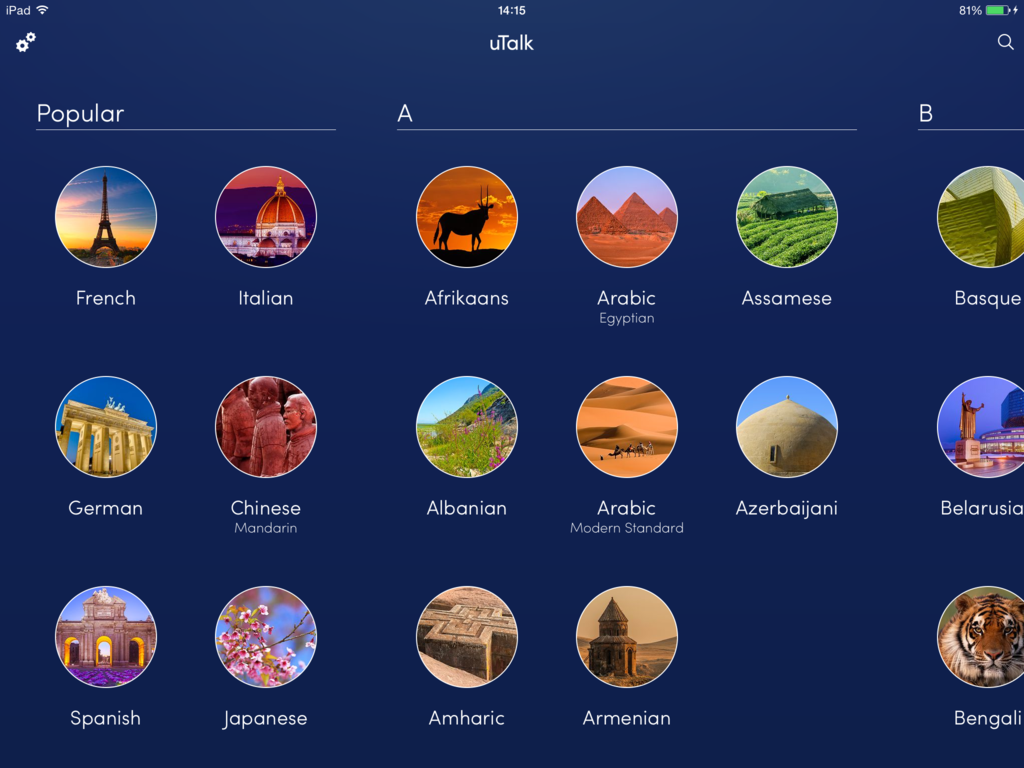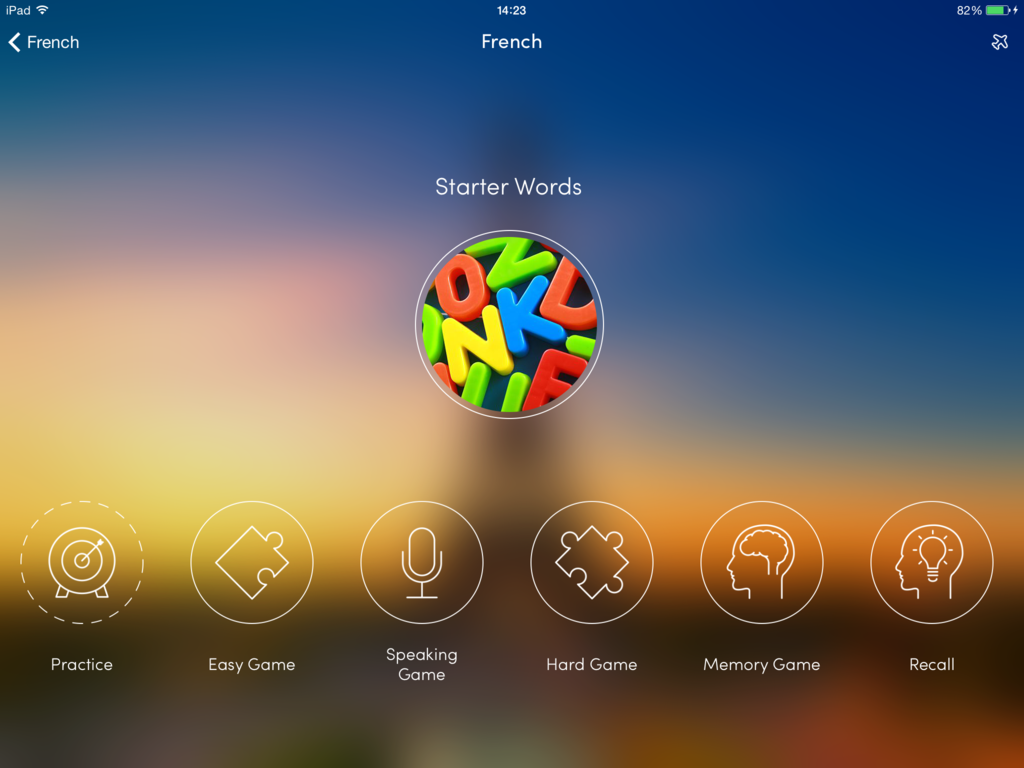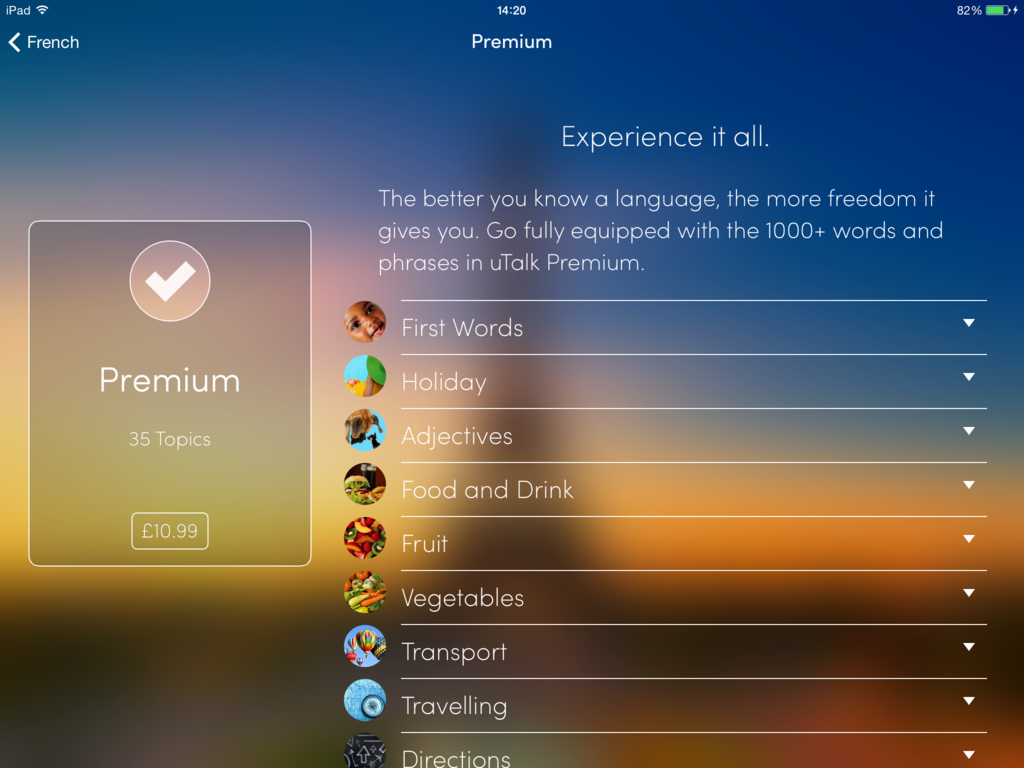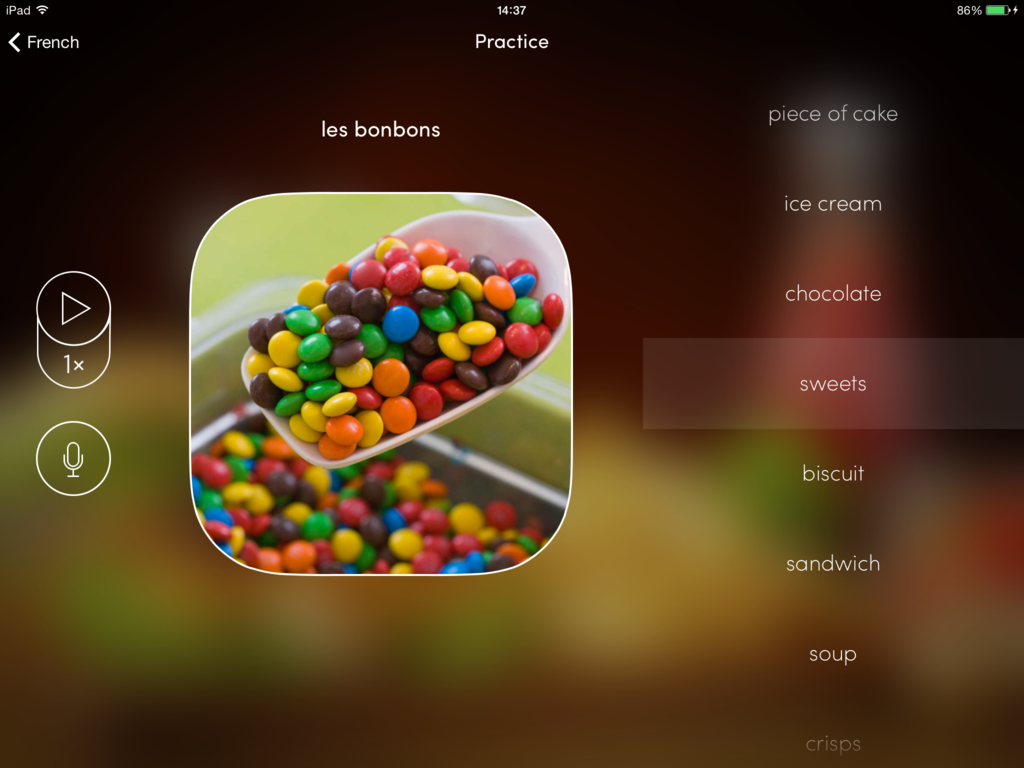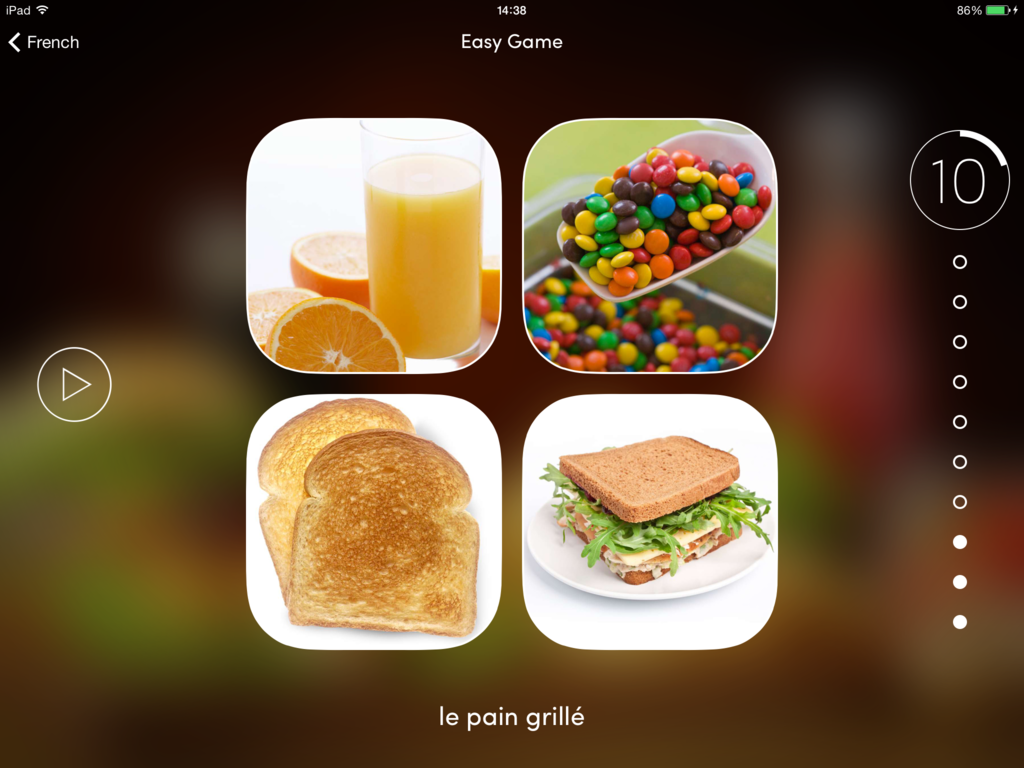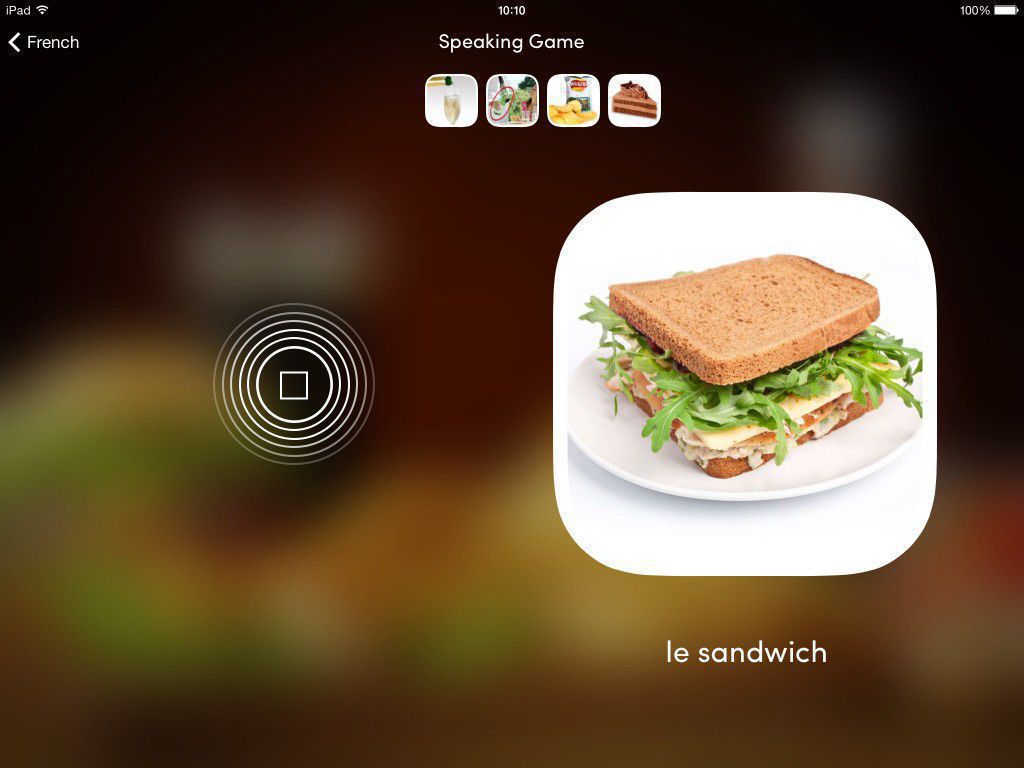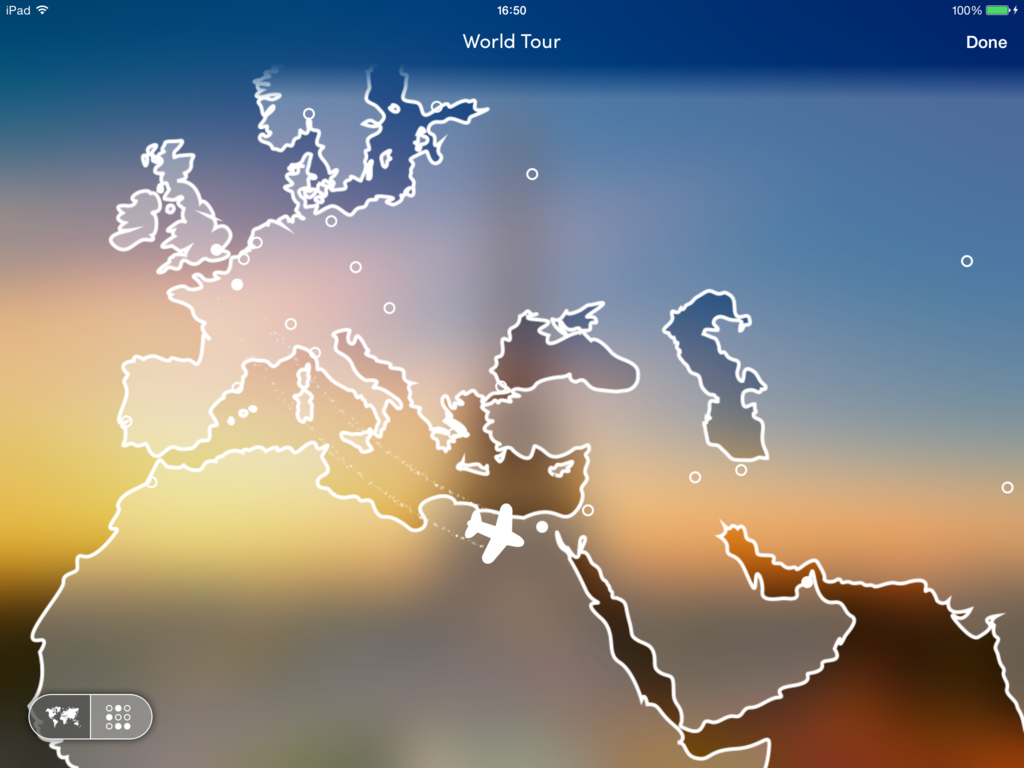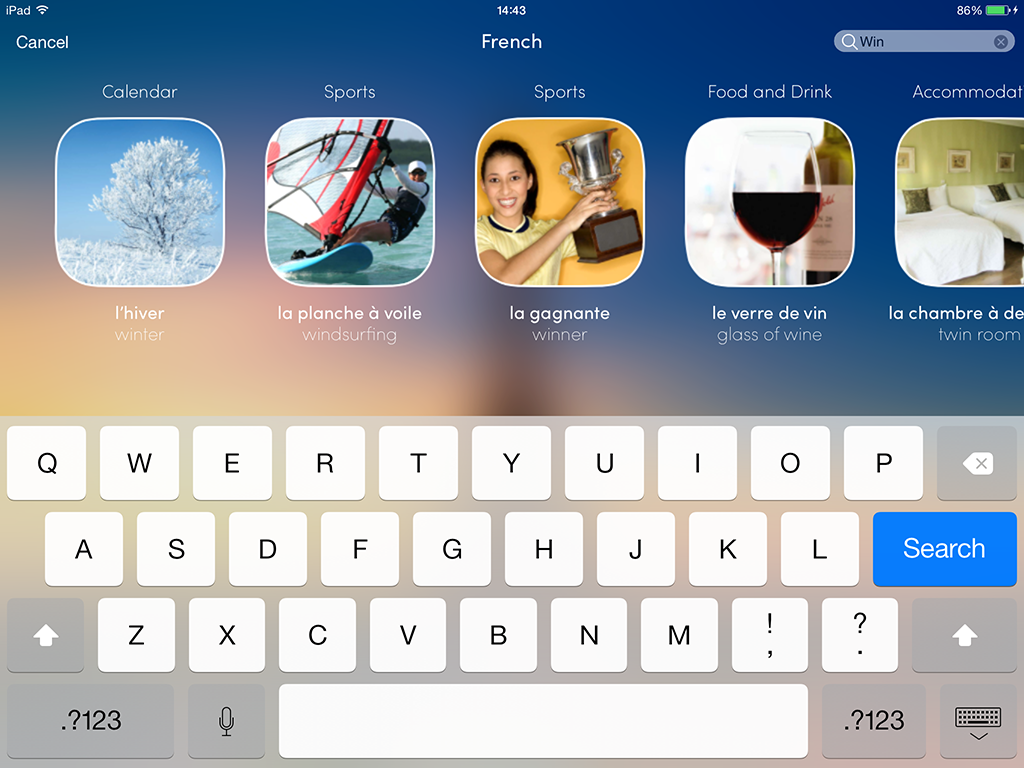uTalk – Learn a Language: A Guided Tour
If you follow us on Facebook or Twitter (or maybe even if you don’t) you’ll know that we recently released a new update for our app, uTalk. And we’re really, really excited about it; not only does it now work on iPads, it’s got 130 languages included and it looks gorgeous. So I thought I’d give you a quick guided tour, so you can see what all the fuss is about.
Choose your language
Once you’ve download the app, the first thing you’ll probably notice is that it’s got loads of languages. From French, Spanish and German, through to Lao, Kachchi and Cebuano, we’ve got them all (and if we don’t have the one you want, we probably soon will – let us know what you’re waiting for in the comments).
The best bit is if you’re just curious and want to hear what a language sounds like, it won’t cost you a penny, because uTalk gives you a Starter Words section in all 130 languages completely free.
Starter Words
These Starter Words include the essentials that you’ll need when you first arrive in a new country – ‘hello’, ‘please’, ‘thank you’ and ‘help’ (hopefully you won’t need that one, but it’s always a useful word to know!) among others.
There’s also a selection of games to help you remember these key words, so you’re totally prepared before you step off the plane.
Upgrades
If you’re anything like me, though, once you’ve learnt a few words you won’t want to stop. So uTalk gives you the chance to learn more, with the Essentials and Premium upgrades.
The Premium will unlock 1,200 words and phrases across 35 categories for the language you choose – and that’s when it gets really fun. The app’s got everything from food and drink and travelling, to adjectives and numbers up to ten million. You can order a beer, ask someone to dance and check you’re on the right train (again – useful).
How it works
Ok, let’s get down to business. You’re going to France for a few days, and you want to learn some French before you go. How should you use uTalk?
First, choose your topic. Then, start with the Practice; this is where you learn the vocabulary. You can listen as many times as you like, slow it down, even have a go yourself with the recording button. Each word or phrase has a corresponding picture, which will help you remember it later, and they’ve all been translated and recorded by native speakers.
Then it’s time for the games. Start with the easy game, because it’s – well, the easiest. You’ll be shown some randomly selected pictures and hear one of the words you’ve just learnt. Choose the correct picture to carry on and start scoring points.
Then work your way up through the games, which get gradually more difficult. Be warned, they’re very addictive, so you may miss your stop because you’re concentrating so hard. And you might get some funny looks when you play the recording game on the train. I speak from experience on both of these things…
World Tour
Hidden throughout the app are 48 achievements. No, I won’t tell you what they are – but every now and again you’ll see a message pop up that says ‘World Tour Destination Unlocked’, and then at the end of that game, you can go and see where you’re heading off to.
Tap on the destination and watch your plane take off. To see how many destinations you’ve collected (and how many you still have to find) touch the grid icon at the bottom of the screen.
Instant Search
Of course this is all well and good, if you have time to sit and learn the language before you leave home. But what if you don’t?
No worries – just take uTalk with you, and any time you need a word, type it into the search box. (I used this feature myself when I went to Italy a few months ago and it saved me more than once.)
So what do you think? If you’re ready to give it a try, you can download uTalk from the App Store for free right now (no camping out required!). And we love customer feedback, so please do tell us what you think of the new design and features.
Most importantly, we really hope you enjoy using the new uTalk as much as we enjoy telling people about it 🙂
Liz
Learning a language – why bother?
Today, we’re excited to introduce Amy, our new sales and marketing assistant. Amy’s going to be with us for the next twelve months while on her placement year from university, and she’s written today’s blog post, about why learning a language is one of the most important things you can do.
When you ask people if they can speak another language or if they would like to learn one, the response is often, ‘Why? What’s the point, everyone speaks English?’ Here at EuroTalk we want to change this perception and to show you why learning a language can be rewarding, enlightening and open up so many more opportunities.
Yes, it may be easier when visiting another country to assume they will speak English, and very often they do in the main cities and tourist areas, but what if you want to explore off the beaten track and find the soul of a country? Do you want to feel apprehensive, excluded and unable to participate, or do you want to be able to jump in with both feet, get to know local people, their customs and truly the best places to visit and eat, not just the latest Top 10! Without the ability to speak the language it is difficult to get to the heart of a country and to appreciate its people or culture in any depth, you can end up merely skimming a clichéd surface.
If you know the language, you will enjoy meeting people rather than feeling awkward and are likely to make some good friends as well, an even greater benefit if travelling alone. In life, isn’t it as much about the people you meet and the experiences you share, as where you were at the time?
Maybe you’re worried that learning a language is a bit boring? Not any more. With our app, uTalk, you learn in a fun and exciting way, no more sitting at a desk for hours at a time, dreading being asked to read out loud! No time? You can learn on your commute, whilst standing in a queue for your lunch or simply sitting on your sofa at home. Learning a language has never been easier and more accessible. No matter where your next adventure may be, make the most of it by learning the language. 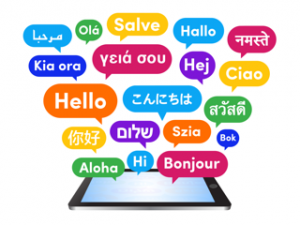 Remember, you never look back and regret the things you did do, just the things you didn’t. So what are you waiting for?
Remember, you never look back and regret the things you did do, just the things you didn’t. So what are you waiting for?
Amy
An introduction to Finnish
Here at EuroTalk, we love languages (obviously). And we particularly enjoy discovering fun facts about languages; they’re all so different and each has its own unique character. So we’ve decided to share some of them with you, in our new Language of the Week series. Each week, we’ll choose a new language, and we’re always open to suggestions!
Please do get involved – we love to hear from you, so send us your own favourite facts and have a go at our weekly challenge for a chance to win some fun EuroTalk prizes 🙂 You can join the conversation here on the blog, or on Facebook or Twitter, where we’ll be sharing more of our discoveries over the coming few days.
 So this week, we’re starting with Finnish, in celebration of the annual Air Guitar World Championships, which start in Oulu on Wednesday, and may be our new favourite event of all time.
So this week, we’re starting with Finnish, in celebration of the annual Air Guitar World Championships, which start in Oulu on Wednesday, and may be our new favourite event of all time.
Here are a few of the best things we’ve discovered about Finnish this week:
– Finnish is thought to be one of the hardest languages for a native English speaker to learn, because of its complicated grammar, which is nothing like English or any of the other languages we’re used to learning. Finnish words can also look pretty daunting to a new learner, as they’re very long and seem to contain a lot of vowels!
– There is no word for ‘please’ in Finnish – not because Finns are rude, but because they just assume politeness. There is a word which means ‘thank you’, kiitos, which is sometimes used in place of ‘please’, and the other way to indicate politeness is to use the conditional – ‘Would you…’
– Also interesting is that a grandson can be either pojanpoika if it’s the son of a son, or tyttärenpoika if it’s the son of a daughter. The same with granddaughter – pojantytär is the daughter of a son and tyttärentytär is the daughter of a daughter. But don’t panic; you can use just lapsenlapsi, which means ‘child of a child’, for a generic term.
– The word sauna is the most widely used Finnish word in English. There are 3.3 million saunas in Finland, which means there is 1 for every 1.63 people. Visiting the sauna is as normal for Finns as going to the pub is to Brits. It’s also a tradition to jump into the lake outside after a hot sauna. This sounds a little crazy and very cold!
– The Finnish language holds the world’s longest palindrome, and just in case you don’t know what that means, it is a word that can be read the same both ways. And here it is: saippuakivikauppias, which is a dealer in lye (caustic soda). Probably not something you’d say every day, but always useful to know.
– The longest Finnish word is 61 letters long (which is outrageous compared to English’s mere 45-letter longest word) and it is:
entokonesuihkuturbiinimoottoriapumekaanikkoaliupseerioppilas
Which means: ‘airplane jet turbine engine auxiliary mechanic non-commissioned officer student’.
– A Finnish tongue twister is:
Appilan pappilan apupapin papupata pankolla kiehuu ja kuohuu. Pappilan paksuposki piski pisti paksun papukeiton poskeensa.
There is no absolute translation but it’s about a vicarage’s assistant priest and his hot pot of beans, which are boiling on the stove and the vicarage’s fat mongrel who ate up the thick bean soup.
Language Challenge of the Week
So now it’s your turn. Have a go at pronouncing one of the words above, or, for ultimate respect, the tongue twister… Send us your videos on Twitter to @EuroTalk with hashtag #loveFinnish or post a link to your video in the comments below. If we’re really impressed, we’ll send you a code for uTalk Finnish 😉
Oh, and in case you wondered what’s so great about the Air Guitar World Championships…
How do you choose which language to learn?
Everyone’s always talking about how useful it is to speak another language – and they’re right, for so many reasons. There’s lots of advice too on how to get started and how to stay motivated when it gets tough. But the first question any aspiring language learner should ask themselves is, ‘Which language do I want to learn?’
Sometimes this is easy, because you’re moving to another country, or you’ve met a new partner who speaks a particular language. Even if this means you end up learning a language most people would consider unusual, to you it has a purpose and that makes it anything but obscure.
But what if you’ve just decided you want to learn a language, because you’ve heard that people with a second language earn more, or that learning a language makes you cleverer, and don’t have a particular one in mind?
 At EuroTalk, we offer nearly 140 different world languages. It’s a pretty daunting selection to be greeted with when you’ve just Googled ‘I want to learn a language’ and stumbled on to our homepage, or downloaded the uTalk app. And that doesn’t even come close to the total number of languages spoken in the world. So how is anyone meant to choose one to learn? Do you just close your eyes and point at one?
At EuroTalk, we offer nearly 140 different world languages. It’s a pretty daunting selection to be greeted with when you’ve just Googled ‘I want to learn a language’ and stumbled on to our homepage, or downloaded the uTalk app. And that doesn’t even come close to the total number of languages spoken in the world. So how is anyone meant to choose one to learn? Do you just close your eyes and point at one?
Well no, we don’t recommend that approach; you could end up with something really fun that way, but at the same time, learning a random language just for the sake of it, when there’s very little chance you’ll ever get a chance to speak it, seems a shame. Half the fun of learning a language is getting to share it with other people.
So here are our recommended criteria for choosing a language:
Number of speakers
Generally, a language with more speakers is going to be more useful to you, because you’re going to have more opportunities to speak it. According to Ethnologue, the top five most spoken languages in the world are Chinese, Spanish, English, Hindi and Arabic, with a total of 2.4 billion speakers between them, so knowing one of these languages is going to guarantee you lots of people to talk to.
On the other hand, it depends on your reasons for wanting to learn a language. If it’s to make friends all over the world, one of these five languages will stand you in good stead. But if it’s to improve your employment prospects, bear in mind that you might face more competition if you’ve chosen a popular language. I studied Spanish at university, which is in great demand with employers. But so did lots of other students. We’ve got five people who speak Spanish at EuroTalk – two of them are native speakers (there are less than twenty of us in total, to put that in context) so it’s rare for me to be called on to use my language skills. Something like Portuguese or Japanese, which are still in the top ten in Ethnologue’s list, might offer fewer opportunities but when one comes along, you’re probably not going to face as many rivals for the job.
Where it’s spoken
Another important factor. Firstly, you don’t want to learn a language that’s spoken in a country you never intend to go to, or in which you’ve no interest. Secondly, some languages, like French, Arabic or English, are spoken in many different countries. So if you’re going travelling and want a language you’ll be able to use in more than one place, one of these will be more useful to you. But if travel’s not top of your agenda, this might not be such a big consideration.
Similarity to other languages
Most world languages are organised in families, which means they come from the same root as the other languages in that family. This means often, although you may only speak one language, you can probably at least make yourself understood in another. Hindi and Urdu, for example, are mutually intelligible, as are Czech and Slovak. If you know Spanish, you can make a reasonably decent attempt at Portuguese or Italian, and although you might make a few mistakes, chances are you’ll be understood. I’m not suggesting you should go around speaking the wrong language at people, but if you do make an honest slip-up, or just can’t think of the right word, you’ll probably be ok. I’m fairly sure I spoke quite a bit of Spanish when I was in Italy earlier this year, but everyone seemed to understand what I was getting at.
Some languages, though, don’t have any close neighbours, or indeed any neighbours at all. Basque, for example, is what’s known as a language isolate, as is Korean. This means they don’t belong to a family, but stand alone, so if you’ve chosen one of these languages, it’s worth remembering that it won’t help you with any others.
Your interests
Partly, this is to do with your travel interests. If you’ve a particular interest in Russia, for example, we’d recommend you learn Russian. But even if you’re not particularly interested in travelling, there are other things to consider. Are you a fan of opera? Maybe give Italian a go. Anime? Japanese. Star Trek? Klingon.
Or maybe you’ve got a particular interest in endangered languages, in which case you might want to learn Cornish or Sardinian, not necessarily for the wealth of communication opportunities it offers, but to help save a valuable world language from extinction.
Your commitment
You know yourself better than anyone. How motivated do you feel? Is this just a passing whim that you’re likely to give up the moment it gets difficult, or are you prepared to stick at it? The fact is, some languages are harder than others, and this is different for everyone, depending on your native language. For Europeans, Dutch is considered quite an easy language to learn, while Mandarin Chinese is very difficult. But someone living in Japan may find Chinese much easier to learn than any European language.
So if you’re living in Europe and intending to learn Mandarin, you’ll need to be pretty dedicated. And if you know you don’t have it in you, it might be better to try something else rather than face disappointment when it doesn’t work out. Nobody’s bad at all languages – you just need to find the right one for you.
If you’re still undecided, and in need of some inspiration, take our quiz – it’s not at all scientific, but might give you some ideas!
Or even better, why not try a few out? You can do this for free on our website, or by downloading uTalk for iOS.
If you have any other tips or suggestions for readers trying to choose a language, please share them in the comments.
Liz
Which language are you learning? The results!
We had a great response to our recent language learning survey; thank you to everyone who took the time to complete it. First things first: we’re delighted to announce that the winner of the iPad mini prize draw is Konstantia Sakellariou. Congratulations, Konstantia – your iPad is on its way!
We wanted also to share a few of our findings with you. Some of the results from the survey were as we expected, others were quite surprising. Here are just a few of the things you had to tell us. Thanks again for all your thoughtful responses, we’ll put them to good use.
Which language(s) are you learning (or would like to learn)?
The first question was pretty straightforward. A couple of people ticked every language on offer (over 100) – now that’s what we call ambition! – but most chose between 1 and 5. Here are the top ten most popular languages: 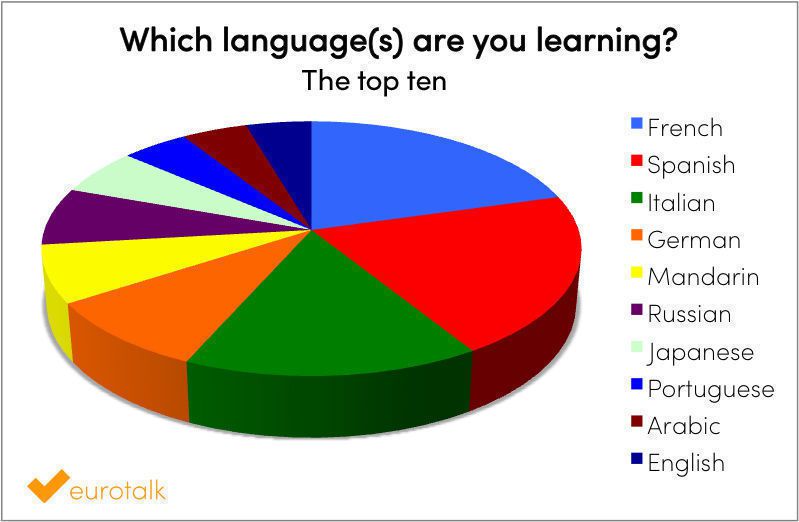 Other popular choices included Greek, Swedish, Dutch, Brazilian Portuguese, Norwegian, Irish, Polish and Icelandic. We also got some requests for languages we don’t yet offer, like Guernésiais and Twi – we’ll do our best to add those languages to our list, so watch this space!
Other popular choices included Greek, Swedish, Dutch, Brazilian Portuguese, Norwegian, Irish, Polish and Icelandic. We also got some requests for languages we don’t yet offer, like Guernésiais and Twi – we’ll do our best to add those languages to our list, so watch this space!
Why are you learning a language?
Next, we wanted to know why you’re learning a language. Nearly half of the respondents chose travel as a reason, and almost as many said they were learning a language just for fun. 36% of respondents said it was for family reasons or for a relationship, and 27% for work. The results were quite evenly split though, showing that there’s no one overwhelming reason – everyone has their own motivation.  Among the other reasons, we had a range of answers, including an interest in the culture of the language, personal challenge and wanting to follow literature, film and music in other languages. Many people are living in another country, which was their main motivation for learning the local language. And one person said that their heart asked for the knowledge, which we loved 🙂
Among the other reasons, we had a range of answers, including an interest in the culture of the language, personal challenge and wanting to follow literature, film and music in other languages. Many people are living in another country, which was their main motivation for learning the local language. And one person said that their heart asked for the knowledge, which we loved 🙂
What prevents you from learning a language?
We were also interested to know what stops people from learning a language, so we asked you to rate the following reasons out of 5. The most common barrier to learning is a lack of time, followed by not having found the right method, and then the cost involved.  Incidentally, if you’re facing any of these barriers, you may like to check out our recent posts, on finding time to learn a language and learning on a budget. And if you’re looking for resources, did you know you can try out the EuroTalk learning method for free? Either visit our website, or download our free app, uTalk for iOS, to give it a go. We believe learning a language should be fun, because our research shows we learn much better if we’re enjoying ourselves, and this in turn makes it a lot easier to overcome the obstacles that get in the way. See what you think! Other answers included not having an opportunity to use the language, a lack of motivation and difficulty finding resources for the particular language they wanted to learn (we may be able to help there – we’ve got 136 languages and counting…).
Incidentally, if you’re facing any of these barriers, you may like to check out our recent posts, on finding time to learn a language and learning on a budget. And if you’re looking for resources, did you know you can try out the EuroTalk learning method for free? Either visit our website, or download our free app, uTalk for iOS, to give it a go. We believe learning a language should be fun, because our research shows we learn much better if we’re enjoying ourselves, and this in turn makes it a lot easier to overcome the obstacles that get in the way. See what you think! Other answers included not having an opportunity to use the language, a lack of motivation and difficulty finding resources for the particular language they wanted to learn (we may be able to help there – we’ve got 136 languages and counting…).
How have you used your language when travelling?
Finally, we asked how knowing another language has been useful when you’re travelling. There was no clear winner here, which just goes to show knowing a language is always useful! But the top response was that it gives you the ability to talk to locals in their own language; many people added that they felt more welcome as a result and that it gave them independence so they could make the most of their trip. There were lots of practical reasons too, with getting around and eating out narrowly beating shopping in the poll. If you missed out on the survey this time, don’t worry – we’re planning another one soon, so keep an eye on the blog (you can subscribe by email above to get the latest updates), or follow us on Facebook or Twitter. And if you didn’t answer this survey but would still like to have your say on any of the questions, you’re very welcome to email us or add your thoughts in the comments below.
If you missed out on the survey this time, don’t worry – we’re planning another one soon, so keep an eye on the blog (you can subscribe by email above to get the latest updates), or follow us on Facebook or Twitter. And if you didn’t answer this survey but would still like to have your say on any of the questions, you’re very welcome to email us or add your thoughts in the comments below.
Liz
Data above based on 877 survey responses.
